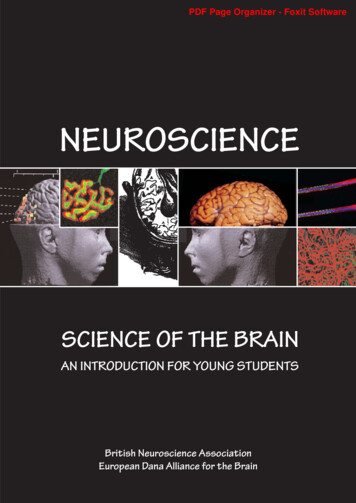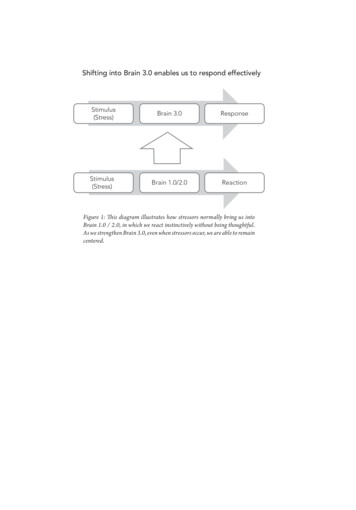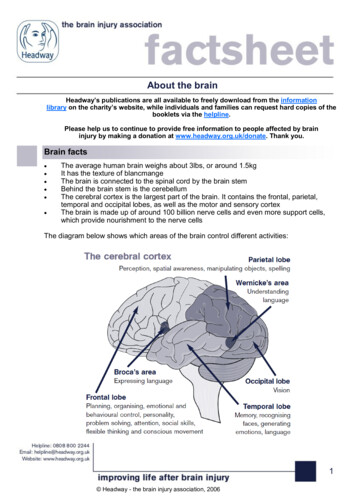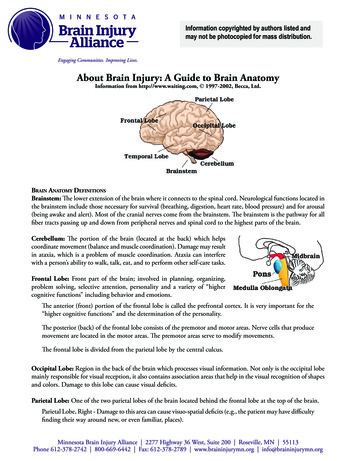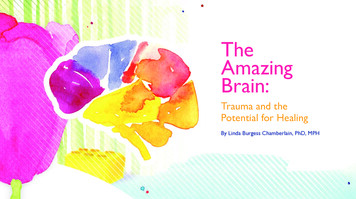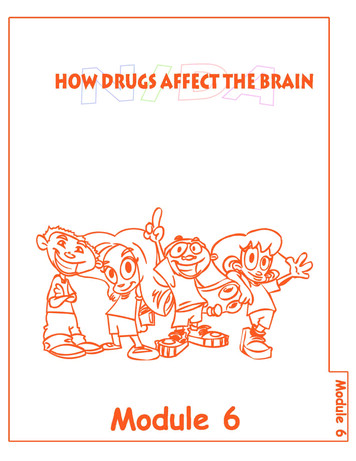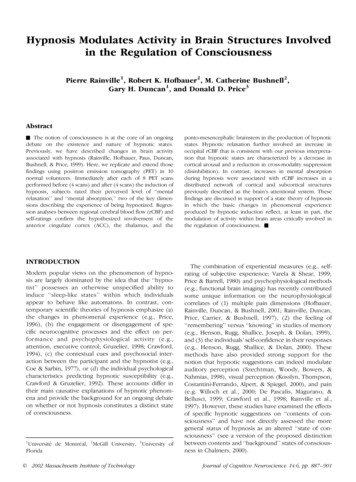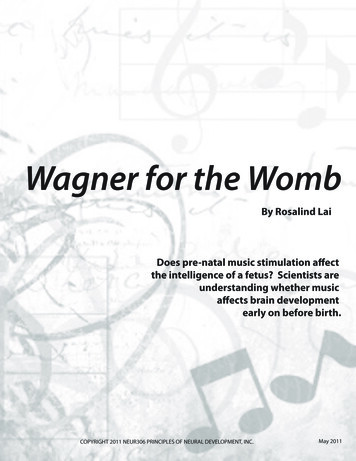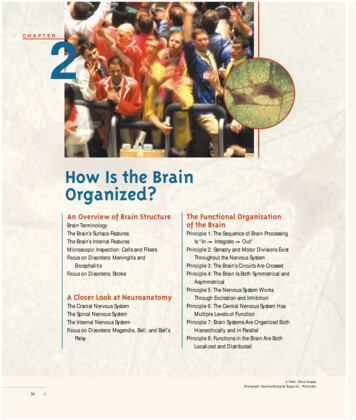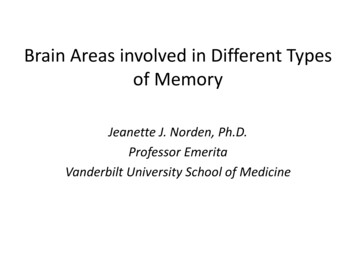
Transcription
Brain Areas involved in Different Typesof MemoryJeanette J. Norden, Ph.D.Professor EmeritaVanderbilt University School of Medicine
REVIEW ( ) Different areas of the brain control differentfunctions; thus, damage to a given area causesa specific loss of function
REVIEW ( ) The cortex is involved in “higher-order”functioning, e.g., voluntary thought andmovement and subjective experience
REVIEW ( ) Neurons are the fundamental cell of thenervous system; neurons communicate witheach other at synapses; communication is“electro-chemical”INPUTOUTPUT
Memory There are many different types of memory Specific cortical (both old and new) and non-cortical areas processdifferent types of memory – or different aspects of memory Learning and memory occur over time and involve many differentindividual events, for example attending, encoding (learning), andretrieving (the memory) All memory involves changes occurring as a result of experience(learning) that allow the organism to alter future behavior based onpast experience Memory is not a snapshot of an event, but an electrically encodedrepresentation Memory fails us in ways that tell us something about what it is and isnot
There are many different types of memory Memory is generally divided into two broadcategories: explicit and implicit memory
Implicit or Non-Declarative Memory Memory for skills, habits andbehaviors Operates without consciousawareness once learned Requires repetition and practice Less likely to be forgotten oncelearned Allows many types of behavior to beon “auto-pilot”
Many different brain areas play a role inimplicit memory For example, nuclei deep in the hemispherecalled the basal ganglia are involved in“motor” programs The cerebellum (“little cerebrum”) plays acritical role in the timing and execution oflearned, skilled motor movement
Explicit Memory
Explicit or Declarative Memory Memory of “facts” or “events”; also “spatial” memory Can be consciously recalled Easy to acquire, easy to forget
Many areas of the brain play a role in ExplicitMemory (even more than shown below)Our focus will beon these 2 areasPlays a role in“emotional” memory
Explicit Memory involves processing ofinformation over time
Hippocampus or“little seahorse”
The hippocampus is an “old” cortical areainvolved in multiple aspects of memory The LEFT hippocampus is more involved in thelearning & memory of “facts”,“episodes”,“words”; itis also responsible for constructing – from episodicmemory – an “autobiography” The RIGHT hippocampus is more involved in“spatial” memory The hippocampus compares the present experiencewith past experience; processing through thehippocampus is necessary for learning and formemory consolidation to occur
Memory involves changes occurring as a result ofexperience (learning) that allow the organism to alterfuture behavior based on past experience
Memory involves changes at the cellular andmolecular levels – for example, synapses canbecome more “efficacious”
Or New Synapses can be made as the result ofExperience
Memory There are many different types of memory Specific cortical (both old and new) and non-cortical areas process different types of memory – or different aspects of memory Learning and memory occur over time and involve many different individual events, for example attending, encoding (learning), and retrieving (t
